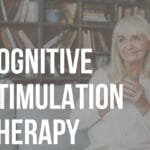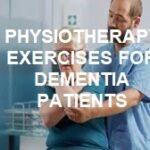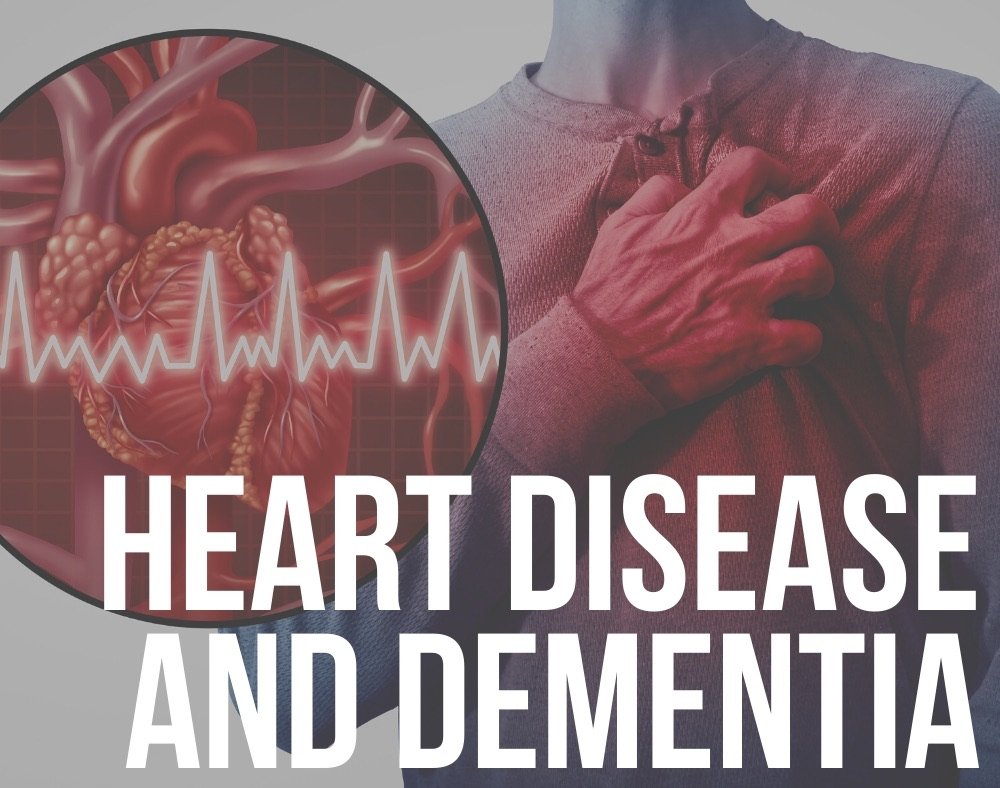Today, we will look at the best cognitive and physical exercise and dementia correlation, and how you can reduce the risk of the disease.
Developing dementia is one of the biggest concerns for the majority of people as they grow older.
The thought of getting the disease can be quite scary, especially for someone who has seen a loved one affected by the illness.
Benefits of Cognitive and Physical Activity for Dementia
Many individuals believe that all they can do is wait for a pharmaceutical cure for dementia and hope that they do not join the growing list of seniors with the disease.
Promising research, however, indicates that it is possible to reduce the risk of dementia through several effective yet simple lifestyle adjustments.
These include taking steps such as stress management, a healthy diet, quality sleep, social engagement, mental stimulation, and regular exercise.
By identifying and then controlling personal risk factors, it is possible to prolong/ maximize lifelong brain health.
Below we will focus on physical and cognitive exercise and the role they play in mitigating or slowing down the progression of dementia.
Cognitive Exercise

In regards to cognitive exercise and dementia, it is worth noting that continuously challenging the brain and learning new things puts you at less risk of developing dementia.
What this means is that you “will lose it if you do not use it.” Keeping the mind active is essential if you do not want your thinking capacity to decline medical research discloses.
This can help you in several ways, such as:
1. Reduce brain cell damage that occurs with dementia
2. Encourage better communication between the nerve cells
3. Support the growth of new nerve cells
Note that no single exercise will keep the brain sharp. You need to indulge in different exercises that will ensure your brain remains in the highest gear.
Some of the exercises you can try out to exercise your brain include:
Acquiring a new skill

Learning how to play a musical instrument, studying a foreign language, reading a good book, or learning how to paint, etc. can be instrumental in helping the brain remain in tip-top condition.
Look around for classes you can join and set aside some time to practice regularly.
Keep in mind that the higher the challenge, novelty, or complexity, the greater the benefit.
Playing card or board games

Playing games with loved ones has two benefits.
One is that you get an opportunity to bond and the other is that it helps the brain to stay sharper by making it work harder.
In as much as games like chess are fun to play, some research shows that it can lead to better math scores on various standardized tests.
Games like monopoly have also proven to enhance decision-making skills while sharpening cognitive function.
Puzzles are a great way to keep your recalling abilities high. These effects also help to keep dementia at bay.
Practice memorization and the 5Ws

When you start memorization, it is best to practice with something short before moving on to more complex things.
For instance, you can always start with the US capital states or books of the Bible, etc.
Creating patterns and rhymes can help to make memory connections stronger
When you are watching TV shows that may involve themes like crimes or feature detective, you can keep the brain active by thinking of the “Who, Why, When, Where, and What.”
When you capture these visual details repeatedly, you will keep the brain neurons firing.
Playing with children

This is another excellent option everyone should be aware of when curious about exercise and dementia.
The young ones have vivid and rich imaginations that directly link to memories.
When a person spends time playing with kids, you join their interesting world. This is typically a world full of unusual details the brain needs to keep remembering.
Doctors also note that adults who take time to play with kids have low-stress levels.
Additionally, heart rate, blood pressure, and high cortisol levels can drastically reduce.
Staying in good moods for longer periods helps to preserve the brain as well as its higher functions.
Read books with problem-solving mysteries

Problem solving is one of the proven ways to exercise your brain. One of the easiest ways you can do this is by solving puzzling mysteries.
You can find these online or in books. Try and tackle at least one mystery every day.
This will baffle the mind forcing you to think deeply so that you can come up with a solution. It is an entertaining way of getting the brain to work.
Gardening

If you are a person who likes to connect with nature while tending to plants, gardening should be on your list of keeping the brain sharper.
Many people not only feel better, but they also do better after gardening sessions.
Experts suspect that exposure to natural light, touching the earth, getting into contact with soil probiotics, and satisfaction of seeing things grow helps to enhance brain function and mood.
Listening to soothing music

Playing music also falls into the category of group activities to be discussed when tackling the topic of exercise and dementia. Good music tames and soothes.
Research shows that listening to Mozart can help make babies smarter.
Musicians are also said to have a lower risk of developing dementia than the rest of the people.
Music is a combination of breath control, exercise, dexterity, memory games, science, math, art, listening feelings, and a lot more.
Although more research still needs to be done, it is possible that music therapy can help combat dementia. It is not all types of music, though.
Genres like jazz, ethnic, and classical offer the most benefit.
Physical Exercise

The other part to highlight when talking about exercise and dementia is the physical aspect.
You cannot dispute the fact that people who exercise frequently are healthier, make better food decisions and retain their mental health longer than the people who do not exercise.
Although exercise will not work on the brain directly, it positively affects levels of blood oxygen, hormones, and the nutrient load that flows in the body.
When you have better control of your body, it benefits the brain because it receives adequate levels of blood, nutrients, and oxygen.
Aerobic exercises especially help to improve memory and thinking because they help to increase heart rate.
Staying physically active has also been known to increase flexibility, strength, and also improve the quality of sleep.
This is a move that can help to reduce the development of dementia. When you exercise daily or several times a week for about 30-60 minutes, you may:
1. Keep learning, reasoning, and thinking skills sharper.
2. Delay the onset of dementia for individuals who are at risk of developing the disease or slow down the advancement of the illness.
3. Enhance judgment, reasoning, memory, and thinking skills for persons who have mild cognitive impairment.
To benefit from physical exercise, it is important to identify safe and enjoyable activities for a person’s ability level.
Some of the ideas you can borrow from include:
Walking

This is one of the best exercises that a person can take part in. You do not even have to be outdoors to enjoy a great walk. An individual can decide that walking inside their house does them justice.
Regardless of the amount of time you take engaging in this activity, it is beneficial for the mind and body.
To make walking more pleasant, you can combine it with an errand such as rushing to the grocery store or walking your pet.
Dancing

If you enjoy dancing, you will not even feel as though you are engaging in exercise.
Dancing is a fun way to let loose and get the body moving a great addition to the things you need to do when discussing exercise and dementia.
You can opt to do this freestyle. This is where you switch on the music and burst your favorite move.
You can even get together with a couple of friends and head to the disco if this is something you will enjoy.
Alternatively, take things a notch higher and sign up for a professional dance class. The goal is to have a blast while doing some good for your entire body.
Weight or resistance training

This is where you work out muscles against an external force. This type of exercise offers multiple benefits.
These include increased flexibility, bone density, tendon, muscle, and ligament strength, improving posture, and metabolic rate.
Yoga

Although yoga cannot be described exclusively as a physical exercise, it is important to mention it as the activities to try when thinking about exercise and dementia.
Experts advise that you combine yoga and medication for the best results. This can help to improve focus, de-stress, reduce anxiety, enhance mood, and increase healing among many other benefits.
Although it is still difficult to understand specialists explain that a meditating brain is different from the awake brain.
Studies are underway to help people grasp this concept more.
Regular physical and cognitive exercise is crucial for everyone to stay mentally and physically fit.
This is despite the fact that extensive research needs to be conducted to show the degree of physical and cognitive exercise that helps to improve memory or slow down the advancement of cognitive decline.






![Coping with Alzheimer’s and Diarrhea [6 Tips] alzheimer's and diarrhea](https://readementia.com/wp-content/uploads/2020/08/alzheimers-and-diarrhea.jpg)
